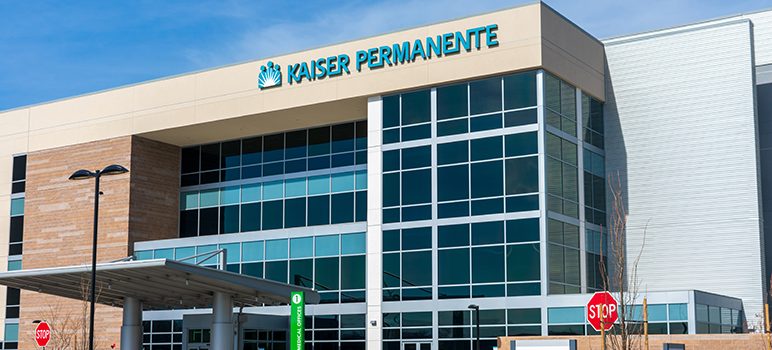Tens of thousands of Kaiser Permanente workers are set to strike for three days this week if negotiators can't reach a contract agreement by Wednesday.
The workers' union, Service Employees International Union-United Healthcare Workers West, said if its 75,000 members take to the picket lines, it could be the nation's largest ever healthcare strike.
“Kaiser executives are refusing to listen to us and are bargaining in bad faith over the solutions we need to end the Kaiser short-staffing crisis,” Jessica Cruz, a licensed vocational nurse at Kaiser Los Angeles Medical Center, said in a news release Monday.
The two sides met today, but if talks fail, workers at Kaiser hospitals and clinics in California, Colorado, Washington, Oregon, Maryland, Virginia and Washington, D.C. will strike.
The union represents roughly 19,000 Kaiser workers in the Bay Area, including licensed vocational nurses, emergency department technicians, radiology technicians, ultrasound sonographers, teleservice representatives and respiratory therapists, among others.
In addition to the SEIU-UHW workers, two other unions representing roughly 14,000 members -- Engineers and Scientists of California Local 20 and Professional Employees International Union Local 29 -- have authorized a sympathy strike.
Kaiser and the union have been negotiating over several items since April, including wage increases, starting salaries, hiring practices and workforce development, among other things.
SEIU-UHW officials have said that the health care giant reported more than $24 billion in profits over the last five years and its CEO was paid more than $16 million in 2021, while forty-nine other executives took home more than $1 million annually.
At the same time, the union charges that Kaiser is proposing to cut workers' performance bonuses, make it easier to outsource jobs to “low-wage, for-profit companies” and has failed to provide wages that keep up with inflation.
Kaiser says many of the union's claims are misleading and that it is offering across-the-board wage increases, a company-wide minimum wage starting at $21 an hour -- the union is asking for $26 -- and continuing health benefits and retirement plans, among other things.
Kaiser officials also say they have spent millions on staff development and training, accelerated the rate of hiring and are offering across-the-board wage increases of between 10 and 14 percent over four years.
The company said the two sides have made progress on many topics and over the past week reached tentative agreements in "four key areas," including travel for continuing education, the use of temporary workers such as traveling nurses, tracking staff vacancies and dispute resolution.
“While a strike threat is disappointing, it does not necessarily mean a strike will happen. We are continuing to bargain in earnest,” Kaiser officials said Monday. “We take any threat to disrupt care for our members seriously and have plans in place to ensure we can continue to provide high-quality care should a strike actually occur this week.”
Kiley Russell is a reporter with Bay City News.

